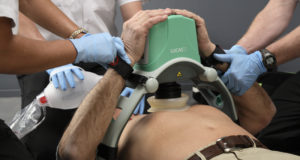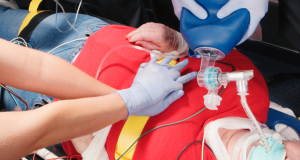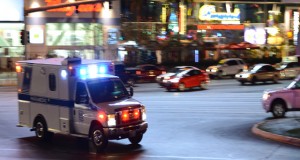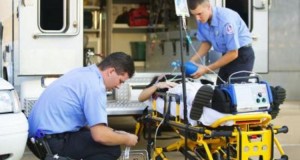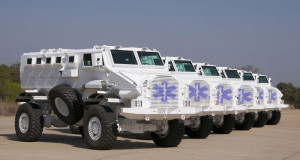The 2015 American Heart Organization (AHO) Cardiovascular Care Guidelines will introduce three new levels of evidence in addition to the current existing levels of evidence
In addition to the current levels of evidence classes the AHO’s 2015 guidelines will include Class IVa (Anecdotal Evidence), Class V (Provider Opinion) and Class XI (Treatments Not Proven to Not Work)
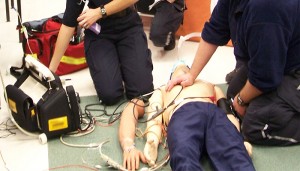
EMS training could be cut if bill passes
Dr Raymond Stantz stated in a phone interview last week, “A lot of providers, especially those in the prehospital arena have strong opinions on how treatment modalities work and the effects of medications. Granted these opinions are often incorrect and based on a poor level of understanding of pathophysiology, and even poorer education, but the AHA realizes people may have strong emotional reactions when their opinions are proven wrong .The last thing the AHO wants to do is hurt anyone’s feelings”
This category also includes people who took ACLS years ago and haven’t been able to stay current with research and evidence based medicine. Dr Peter Venkman said, “We realize that people are busy and medicine is constantly changing. If something was taught years ago and they have not been informed that our knowledge base has changed and the guidelines updated, well, to them it is true and should not be challenged”
Class IVa (Anecdotal Evidence)
AHO includes the following in the new guidelines, section IVa (Anecdotal Evidence): “Many people have seem something work or they know of someone who has seen something work, or perhaps have heard of someone who knows someone that has seem something work. If a treatment has been said to work in the past then it stands to reason that it will work again. The AHA now accepts anecdotal evidence as equivalent to and just as valid as a Class I intervention provided that the evidence is no more than 4 degrees of separation from the person.”
Janine Melnitz, LPN, A.S., outreach director for the AHA said, “we realize that with AE (anecdotal evidence) that there may be treatments based on a population of just one person, or even less than that. Looking at existing care providers we realized that the EMS community has been practicing treatments based on anecdotal evidence or even pure speculation for years. The AHA considered trying to re-educate EMS providers in this regard but we found that the use of anecdotal evidence is so ingrained in the EMS culture that this task proved nearly impossible and in no way financially viable to us, at this time”
Melnitz LPN, A.S. also stated that other discipline were not so adverse to abandoning anecdotal evidence, “ We found other health care professionals such as Nurses, LPNs such as myself, CNAs, nursing home bathing technicians and even dental hygienists were shifting their practices to endorse evidence based guidelines, whereas the ambulance drivers did not feel comfortable with that. Perhaps in the 2020 or 2025 guidelines we will revisit this issue”.
Class XI (Treatment Modalities Not Proven to Not Work)
This addition to the guidelines came about when practitioners of the healing arts community petitioned the AHO to allow energy work, homeopathic treatments and chiropractic manipulations to be used in conjunction with standard ACLS . Traditionally the burden of proof fell on those advocating the treatment, but in a statement Monday Dr Vinz Clortho said, ““We looked at alternative medicine and realized that our guidelines and their emphasis on actual evidence and the utilization of science made it impossible to include practitioners such as Reiki masters, chiropractors, naturopaths, etc in the AHO guidelines. The AHA realized that by not including them in the guidelines we were missing out on a substantial revenue stream by bringing them in to the fold and making them recertify every two years. The alternative medicine community is constantly seeking ways to be seen as actual legitimate medicine and for a small cost we are able to offer that service to them”.
The 2015 AHO guidelines will include a chapter titled “Part 17 – Complementary and Alternative Medicine Guidelines for Emergency Cardiovascular Care and Cardiopulmonary Resuscitation”
The 2015 AHO Guidelines for Pediatric Advanced Life Support is also rumored to have a chapter on Pediatric Chiropractic Manipulations and the Special Populations Chapter will include a section on Vaccine induced autism Indigo Children.
 Call the Cops The 27th Most Trusted Site in Public Safety
Call the Cops The 27th Most Trusted Site in Public Safety
